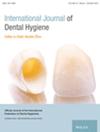Empathy as a Psychometric Property in Dental Undergraduate Students
Abstract
Objectives
Empathy has been an essential competency in the clinical training of dental students and plays an important role in building relationship with patients. It has been found that gender and age may influence these empathetic responses; however, the findings vary across the literature. This study aims to investigate if age, gender and type of undergraduate dental training have a dependent relationship with the level of empathy.
Methods
The participants' empathy levels were measured using the Jefferson Scale of Empathy for Health Professional Students and reported as a total score. The data were analysed using an independent t-test to compare the means of age and gender with level of empathy. An ANOVA test was used to evaluate the mean difference between dental science, dental hygiene and dental nursing students and their level of empathy.
Results
Most of the 57 participants were females (82%). Only 10 males participated and were all members of the dental science. The male students had a higher mean empathy level (110.6) than their female peers (109) (p = 0.733); participants aged 19–23 years had a lower mean (108) empathy level than their peers aged 24 and older (114) (p = 0.113); discipline empathy levels in dental science and dental hygiene were similar (111), with a lower mean level in dental nursing (106) (p = 0.233).
Conclusion
The study did not demonstrate a statistically significant difference between age, gender or discipline of undergraduate training with level of empathy. However, the results showed that age and gender have some influential relationship and should be investigated further to guide development of the educational curriculum in dental undergraduate training.

 求助内容:
求助内容: 应助结果提醒方式:
应助结果提醒方式:


